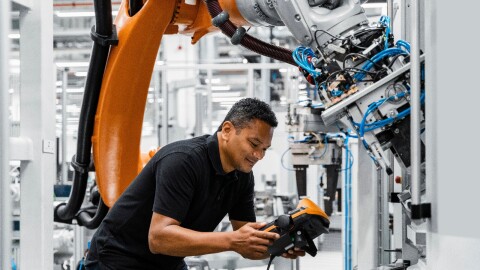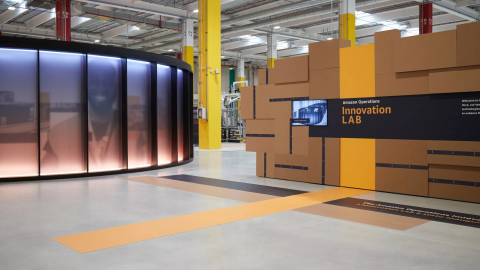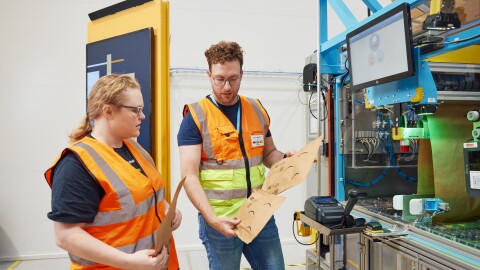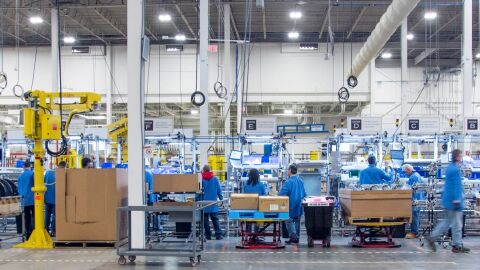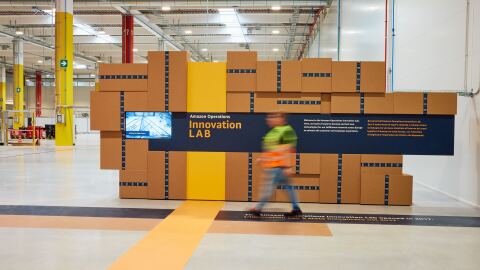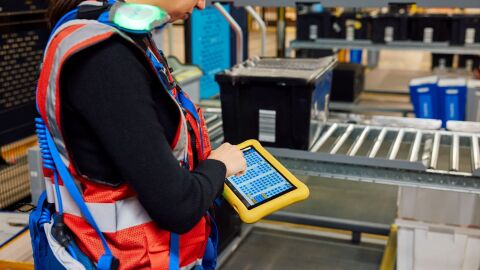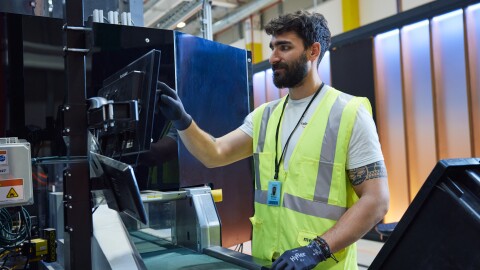And with Alexa's weather forecast, nobody must stand in the rain. In the video, employees of the Amazon Development Center reveal what is behind Amazon's intelligent everyday assistant.
For the user, operating Alexa is very simple and intuitive. However, for Alexa there are countless steps she has to take."
Alexa is a voice service available in the cloud and has its home in the Amazon Echo, an inconspicuous, slim device with intelligent voice control and a loudspeaker. Whoever starts an interaction with the artificial intelligence in the cloud through one of the freely definable voice commands 'Alexa', 'Amazon' or 'Echo', receives support in organizing daily life as well as answers to numerous questions.
How old is Mario Götze? The question sounds simple. But Alexa needs to find and process a whole range of information to answer it: "First of all she needs to know who Mario Götze is," explains Per Gyllensvärd, Senior User Experience Designer. "Alexa learns this from various sources of information on the internet. On the website Wikipedia.de, for example, the date of birth is listed. Then she has to know which date is today to calculate the age. Finally, Alexa must be able to express the answer correctly."
Despite the complex processes running in the background, the answer comes promptly: "Mario Götze is 24 years, six months and four days old". But how does the intelligent loudspeaker even understand what you want? "We collect a lot of language examples and compare them with our databases," explains Max Bisani, Manager Machine Learning. Each syllable and letter are identified and matched so that Alexa does not confuse an "e" with an "ä".
What seems like science fiction to the layman is everyday life for the employees of the Amazon Development Center. An everyday life of algorithms, patterns and function of machine learning. What seems so simple when dealing with Alexa is actually based on thousands of learning processes Alexa has to cope with so that she can distinguish between English and German pronunciation, interpret colloquial language correctly and for example knows which piece is meant: a piece of cake? The new piece by Adele? Or should she give a piece of advice? "Alexa learns the context from complete sentences. She can see that the combination of a music request with a band name and the word 'piece' probably indicates a song, unlike other combinations with the term 'piece', says Fabian Triefenbach, Speech Scientist.
Alexa doesn't know everything, of course. But through the repeated input of terms her knowledge gaps get filled. "It can be said Alexa learns by using her all the time," says Volker Lieutenant, Speech Scientist. Every customer can make Alexa better. Just as users develop new apps for smartphones, technology enthusiasts can program new skills for Alexa. "It was fun to develop a skill for my children that is now running on our Amazon Echo," reveals Patrick Lehnen. "Alexa entertains our kids brushing their teeth. Since then, they have been much more motivated to use their toothbrushes." Speaking of fun: Alexa also proves her sense of humor - essential skill in everyday life. "Alexa, why is the banana crooked?" Alexa: "Because nobody moved into the jungle and bent it straight."



